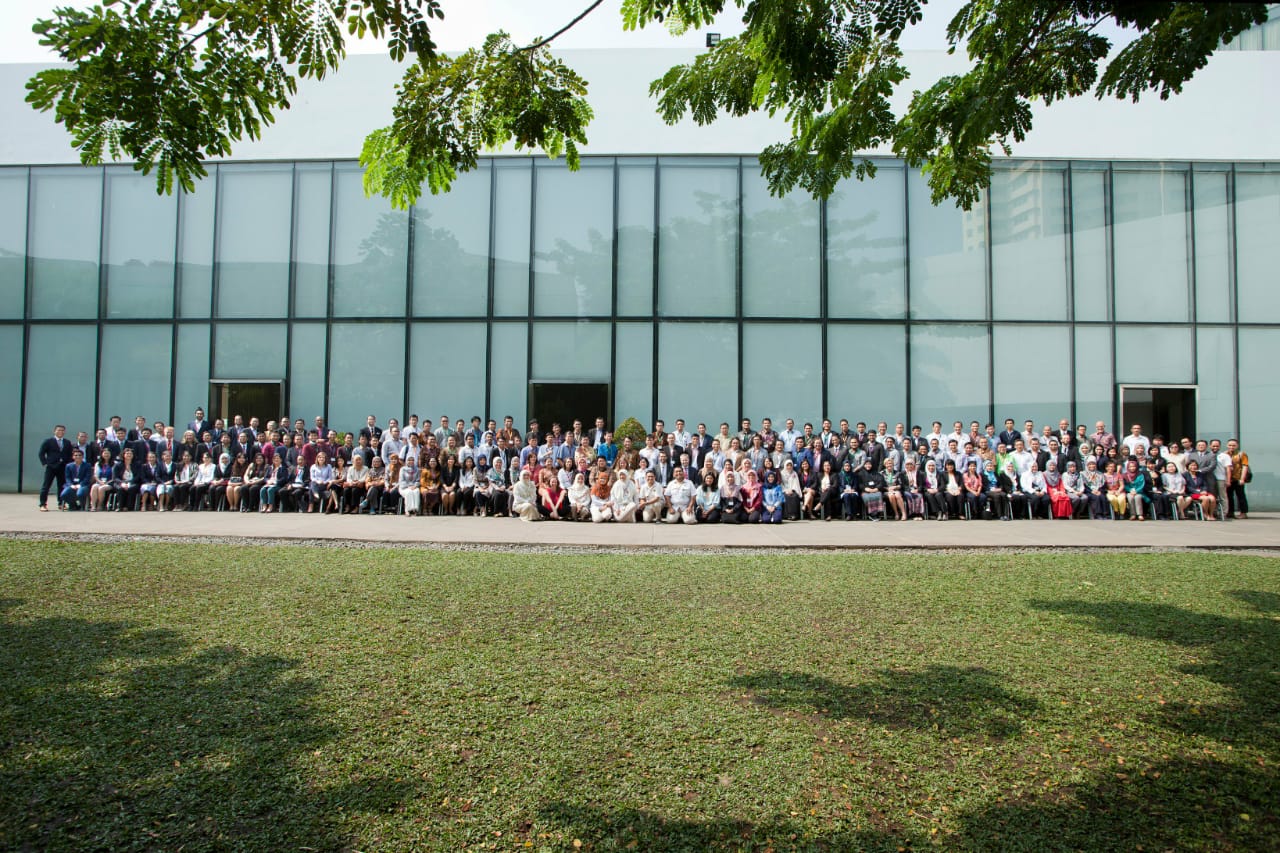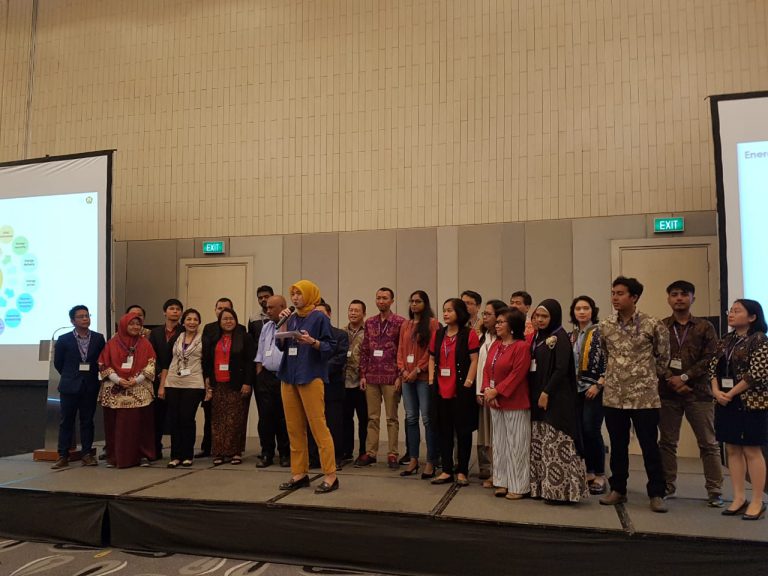Menu

The ASEAN Centre for Energy (ACE) actively participates in various energy trainings, seminars and other capacity building activities both at he regional and international levels. This year, ACE participated in a training week organized by International Energy Agency (IEA) in partnership with the Directorate General of New, Renewable Energy and Energy Efficiency (DGNREEC) of Indonesia, on 16 -20 July 2018 in Jakarta.
With the theme ‘Energy Efficiency in Emerging Economies’, the training programme welcomed participants from Asia-Pacific and neighbouring countries in Asia; ASEAN Member States (AMS), Bhutan, Nepal, Pakistan and Papua New Guinea. About 180 attendees participants from the government sector, energy industry, regional think-tanks, and energy efficiency (EE) communities discussed their EE efforts for economic growth.
The training week is opened with a plenary session, whereby Denmark and Switzerland’s representatives explained about their nations’ priorities in EE. The Ambassador of Denmark for Indonesia, Rasmus Abildgaard Kristensen, revealed that EE has become the first fuel in Denmark’s energy sector. Mr. Kristensen added that Denmark has successfully detached their GDP growth from inefficient energy consumption by using EE as one of the drivers. Denmark gradually supports EE efforts through regulations, incentives and financing mechanism, as well as raises awareness on energy saving to the public.
During the plenary session, Febby Tumiwa from Institute for Essential Services Reform (IESR) mentioned about Indonesia’s challenges in promoting EE. Although Indonesia has supported EE efforts by implementing EE labelling and standards for compact fluorescent lamps and air-conditioners (AC), switching to light-emitting diode (LED) and energy-efficient AC to save more energy consumption up to 54 Peta Joule/year and 32 Peta Joule/year, respectively. This is estimated to save $1.89 billion/year of energy expenses. Additionally, the challenges of EE efforts do not merely revolve around switching to more energy-efficient appliances, but to enforce the following: 1) re-directing consumers’ behaviour and preferences, 2) developing appropriate energy pricing policy; and 3) encouraging the industry to comply with EE efforts.
The training programme included several courses such as Industry, Lighting and Appliances, Transport, Building, Data & Statistics and Policy & Programme Evaluation. ACE took part in two courses: Data & Statistics and Policy & Programme. The five-day technical training on EE statistics catered policymakers, professionals and statisticians. Moreover, this training programme aims to reach the following objectives: i) to familiarise the concept of end use data and ways to develop EE indicators across consumption sector; ii) to share experiences on EE indicators and data collection; and iii) to understand the necessary key steps to efficiently track EE progress.

Credit : IEA
The training also introduced ‘Theory of Change’ as a toolkit for evaluating policy or programme. ‘Theory of Change’ is a thinking framework to track input, activity, output, outcome and impact. When the five elements have been defined, evaluators will start developing assumptions regarding to the policy and programme. To continue, they will put these assumptions to test by making evaluation questions through interview, survey, statistical data/measurement or official reports. In an effort to implement ‘Theory of Change’, participants were assigned to evaluate a site visit. The participants applied the ‘Theory of Change’ to determine whether the site visit reached the objectives and is beneficial for the training participants.
During the training week, ACE also shared the EE efforts and initiatives in the AMS. EE is an ASEAN focus under the ASEAN Plan of Action for Energy Cooperation 2016-2025. ASEAN has pledged to reduce energy intensity up to 30% by 2030 from the 2005 level. ASEAN’s EE efforts have been translated to many programmes such as the Mutual Recognition Agreement, Minimum Energy Performance Standard, and the implementation of EE labelling and regulations in ASEAN Member States. (NS. Featured photo credit: IEA)
